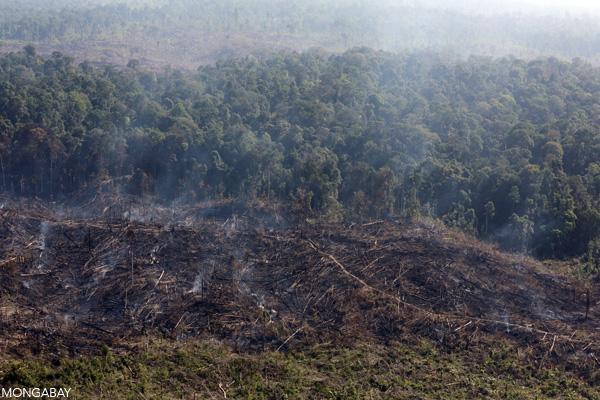A coalition of governments and organizations today pledged to restore 20 million hectares (50 million acres) of degraded forests and ecosystems across Latin America by 2020 under an initiative that aims to curb boost rural incomes, fight climate change, and increase agricultural production. The effort is backed by $365 million from five impact investors.
Five NGOs — World Resources Institute (WRI), International Center for Tropical Agriculture (CIAT), Centro Agronómico Tropical de Investigación y Enseñanza (CATIE), and the International Union for the Conservation of Nature (ICUN) — are supporting Initiative 20x20, which represents a major contribution toward the Bonn Challenge, a 2011 commitment to restore 150 million hectares globally by the end of the decade. Seven countries and two regional programs are participating, led by Mexico and Peru, which account for over half the 20 million hectare target.
Initiative 20x20 targets the 200 million hectares of degraded land estimated to exist in Latin America. Much of this area was deforested for cattle pasture and subsistence agriculture, heavily degraded by logging, or affected by fire.
The effort will leverage an advanced mapping platform that highlights areas suitable for restoration. The data will be available via WRI’s Global Forest Watch so everyone will be able to see where opportunities lay.
Restoration efforts will include both natural forests — not tree plantations — and “mosaics” of trees, crops, and livestock. The latter approach will contribute to poverty alleviation efforts, while improving ecosystem function, according to the initiative’s backers.
“Land restoration in the region is an essential element to promote equity, poverty reduction, alternatives for development in poor rural areas as well as a mechanism to achieve a low carbon, more resilient future,” said Gabriel Vallejo, Colombia’s Minister of Environment, in a statement.
“The mosaic approach in Initiative 20x20 or what we call ‘climate smart territories’ will allow countries to target improvements in rural incomes and food security as well as to protect natural forests and grasslands so critical to our sustainable future,” added Jose Joaquin Campos, Director General of CATIE.
Importantly, the initiative managed to secure substantial finance from the private sector, including $120 million from Althelia, $100 million from Permian Global, $80 million from Moringa, $60 million from Terra Bella, and $5 million from Rare. These investors’ targets include from agroforestry, silvopastoral, non-timber forest products, avoided deforestation, and low carbon agriculture projects. More funding is expected from bilateral and multilateral funders.
There are also hopes other countries, NGOs, and investors will join the initiative, according to WRI.
“Twenty million hectares is just the beginning for restoration in Latin America and the Caribbean,” wrote Walter Vergara and Jared Messinger in a blog post. “This initial goal helps to establish the importance of addressing the dynamics of land degradation in the region, and hopefully, will lead to larger, more ambitious targets in coming years.”
This article was originally written and published by Rhett A. Butler, the head administrator for news.mongabay.com. For the original article and more information, please click HERE.



